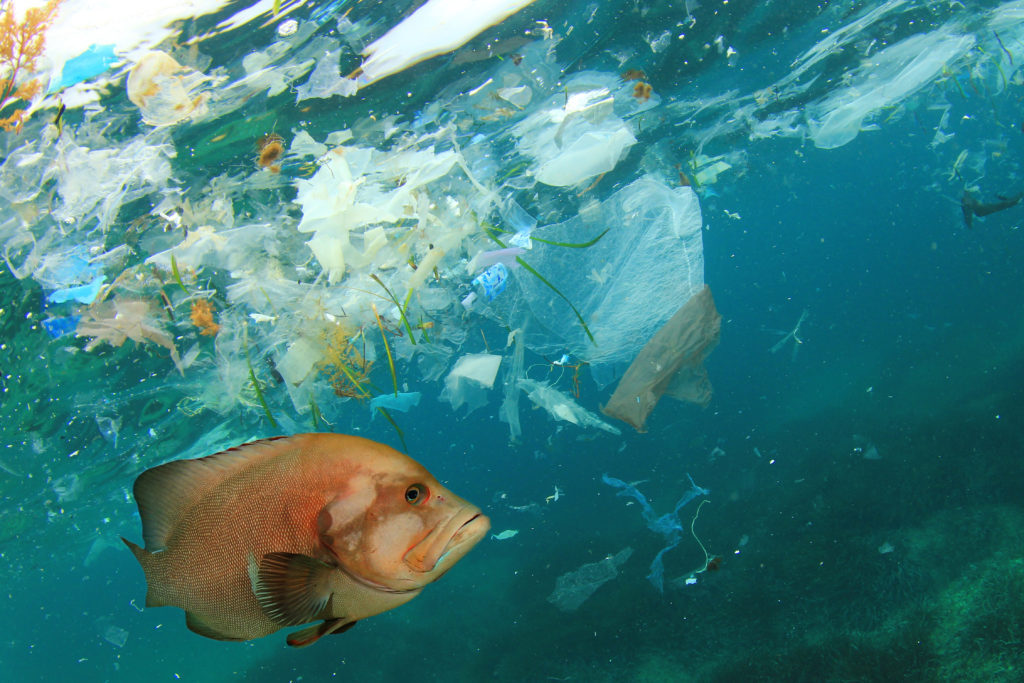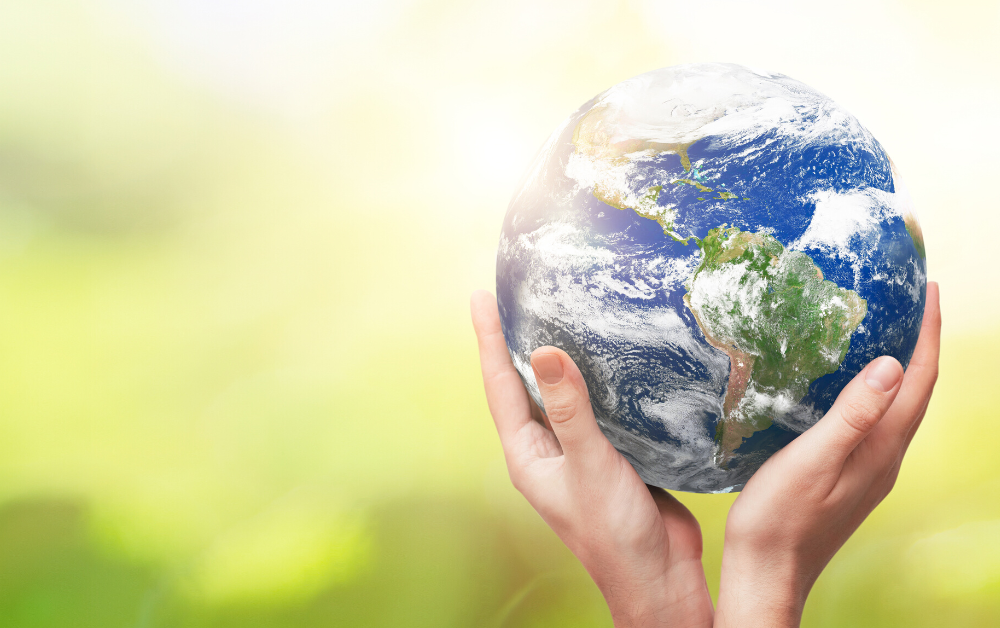Plastic, which is made from nonrenewable resources like crude oil and natural gas, negatively impacts the environment at all stages, from its production to taking centuries to break down. Eighty-six million tons of plastic packaging are produced each year, however, less than 14% gets recycled (Chua, 2021). Around the world, 75% of people state they have adopted lifestyles to help reduce their plastic waste, but there is much more progress to be made in becoming plastic free (Brandwatch, 2020).
Consumers need to reduce their plastic usage for both sustainability and environmental purposes, as most of it ends up in landfills or the ocean. Microplastics are small particles, less than five millimeters in size, formed when plastics break down. These are problematic because they are ingested by aquatic life, they absorb toxins found in water, and they release pollutants and chemicals into waterways. One source of microplastic fibers comes from laundering clothes–microplastics come, in part, from synthetic fibers that make up apparel. Laundering one garment releases about 1,900 microfibers into water filtration systems (Resnick, 2018). What is the solution?
Reducing plastic usage
The Plastic Free Foundation began the initiative #PlasticFreeJuly. While the #PlasticFreeJuly movement is limited to one month, everyone needs to take easy, actionable steps each day to reduce plastic usage. For instance, here are some suggestions for how to curtail plastic use in multiple areas of daily life:
Out and about
- Carry reusable products, such as cutlery, straws, water bottles, and coffee cups, to save on single-use items.
- Utilize reusable totes when shopping.
- Pick up litter, and subsequently dispose of it in the proper manner.
At work
- Recycle both personal and work-related paper and plastic.
- Share #plasticfree with co-workers as well as on social media.
- Use plastic-free signage.
- Offer reusable items at events.
- Reuse mailers to ship or return items.
At home
- Avoid pre-packed food by selecting bulk or loose food.
- Ditch cling wrap for beeswax wrap when storing food for later.
- Compost organic material instead of throwing it away.
- Reuse jars and containers for storing leftovers.
- Switch to a bamboo toothbrush instead of plastic.
- Use bar soaps in place of liquids sold in plastic dispensers.
- Replace disposable razors with reusable options.
- Extend clothing use between washings to reduce water and energy consumption, carbon dioxide emissions, and time spent laundering, as these certainly result in increased microplastic pollution in waterways.
- Use decorations for holidays and celebrations that don’t contain plastic.
- Purchase apparel from brands that turn plastic into clothing, such as Horizon’s compression leggings made from fishing nets and Quiksilver’s board shorts that use about nine recycled bottles in each pair (Henderson, 2020).
Moving toward being plastic free
In conclusion, becoming plastic free is not a one-size-fits-all journey. It’s important that companies and individuals determine what works best for both their lifestyles and goals and that they make adjustments as needed. In short, consistently putting into practice many of these tips will make a difference in homes, workplaces, communities, and the world.
References
Brandwatch. (2020). Plastic waste in 2020. https://www.brandwatch.com/reports/2020-plastic-waste/view/?utm_source=insights&utm_medium=email&utm_campaign=plastic-report-2020&mkt_tok=eyJpIjoiWTJZNE0yTmlORFpqWkRjMCIsInQiOiJtdWVkWnE2dHN6YnVIU2c1ekRLSzlvZXhyK0l0WDNpM3pZTFRLSG95RHRlNDBFSmxtdkFtTkVMYXRCSjlIZHVPd2M3NndLUDNSRldcL0dWN0xYVk9LMXdjeDN0OE04a3o3SlNja3pub1wvMWZuNUlcLzcwcG90SUNJY01LQzc0MnNWUyJ9
Chua, J. M. (2021, March 30). Denim brands take on the industry’s plastic problem—one polybag at a time. Sourcing Journal. https://cmich.idm.oclc.org/login?url=https://www.proquest.com/trade-journals/denim-brands-take-on-industry-s-plastic-problem/docview/2506929136/se-2?accountid=10181
Henderson, E. (2020, September 8). 9 best brands turning recycled plastic bottles into clothes. Independent Digital News & Media. https://www.independent.co.uk/extras/indybest/fashion-beauty/best-brands-turning-recycled-plastic-bottles-clothes-a8774446.html
Plastic Free July. (2021). https://www.plasticfreejuly.org/
Resnick, B. (2018, September 19). More than ever, our clothes are made of plastic. Just washing them can pollute the oceans. Vox. https://www.vox.com/the-goods/2018/9/19/17800654/clothes-plastic-pollution-polyester-washing-machine

How Clothing Contributes to Plastic Pollution in Oceans
Plastic has been a topic of discussion for many years. Do we keep producing plastic materials...

Earth Day 2022 Review
This year the theme for Earth Day was “Invest in Our Planet.” Women’s Wear Daily (Widjojo, 2022)...

Textile Industry Celebrates Earth Day
Earth Day was initially celebrated by the United States on April 22, 1970, to raise awareness of...

